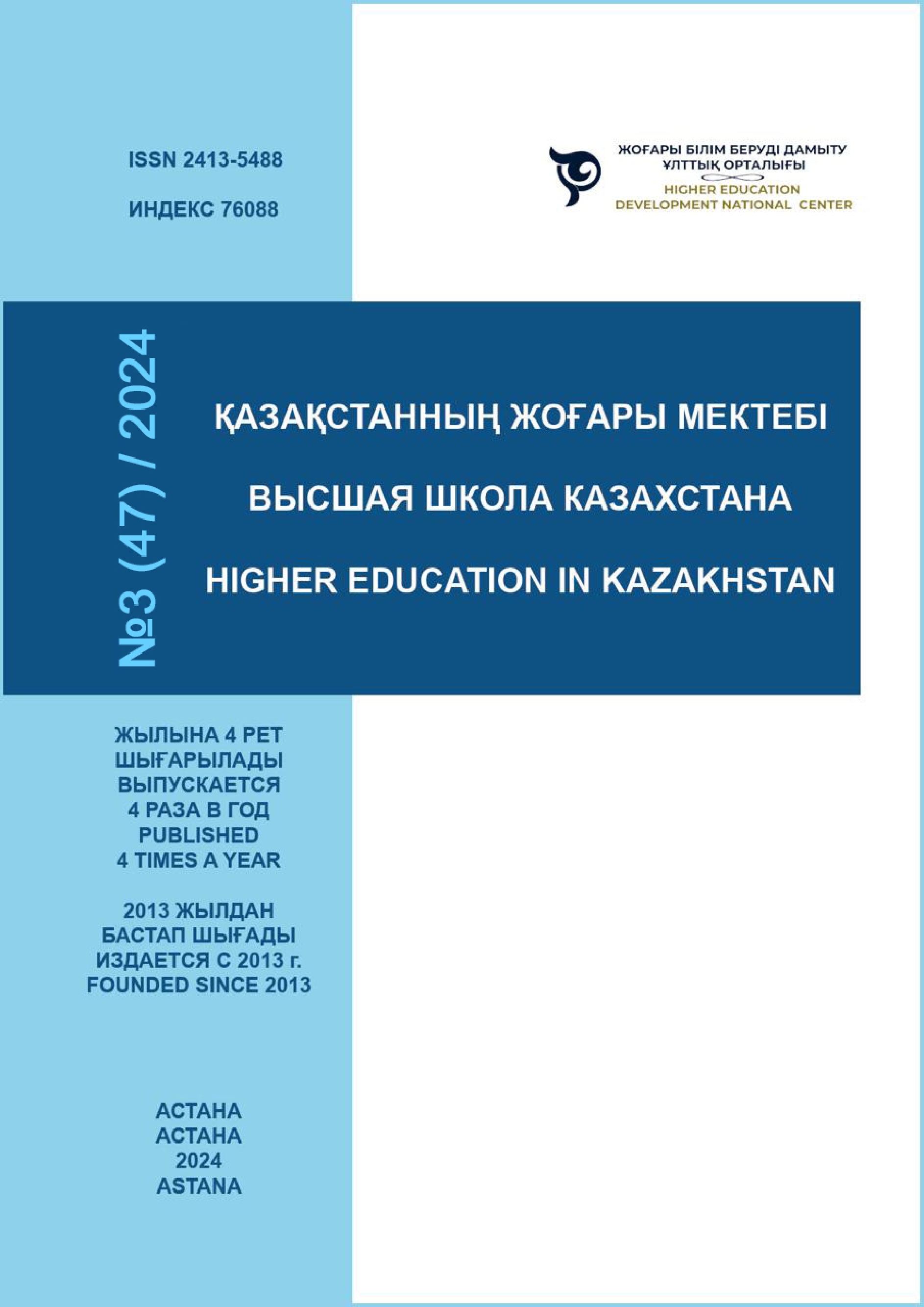PEDAGOGICAL CONDITIONS FOR THE FORMATION OF GEOGRAPHY TEACHERS GEOECOLOGICAL COMPETENCE IN THE EDUCATIONAL PROCESS
DOI:
https://doi.org/10.59787/2413-5488-2024-47-3-14-23Keywords:
competence, competence-based approach, education, advanced training, training of specialists., competence-based learning approach, geoecological skills, didactics, pedagogical conditionAbstract
Today, the formation of competence of geography teachers is an actual task of higher education. To prepare a competitive personality capable of perceiving global problems, to functioning in new socio-economic, socio-cultural conditions, taking into account the modern concept of the joint existence of man and nature. Competence is the ability and knowledge in the field of interaction between geosystems and ecosystems, the influence of human activity on the surrounding nature, as well as the ability to adapt to changing environmental conditions and effectively respond to environmental threats and challenges.
The article has an analysis of theoretical and methodological literature, the following concepts are specified and given to the following concepts: “competence”, “competency-based approach”. The pedagogical conditions for the effective formation of the competence of geography teachers in the educational process have been identified and substantiated, and the pedagogical technology for the formation of geography teachers’ competence in the educational process of the university (through the disciplines of the professional cycle, educational and scientific research activity) has been identified.
References
Alekseeva, M. (2021). Formation of the environmental competence of students in the context of digitalization of education. Society: Sociology, Psychology, Pedagogics ,12, 365–369.
Bakirova, K.& Seilkhan A (2014). Methodological Bases Formation of Ecological Culture for Students of Pedagogical High School. Procedia Social and Behavioral Sciences, 141, 543 https://doi.org/10.1016/j.sbspro. 2014.05.094
Ermakov, D. (2008). The program of the discipline “Environmental competence of students and the methodology of its formation”. Environmental psychology and pedagogy: Specialization disciplines program. Moscow,103-117.
Gagarin, A. (2011). Environmental competence of the individual: psychological and acmeological research. Moscow, 160.
Gürbüz, F.& Karadeniz, H. (2020). The Effect of Stem Applıcatıons on the Stem Awareness of Students and the Performance of the Success in the “Triangles” Unit. Journal of Human Sciences,17(2), 572-592. https://doi.org/10.14687/jhs.v17i2.5900
Istomina, V. (2024). Possibilities of digital reality in the formation of ecological culture of students of vocational educational education. Innovative development of professional education, 2 (42), 125-131.
Kazakova, N. (2004). Formation of the competence of high school students in the field of environmental education: Dis. cand. ped. sciences. Izhevsk,185.
Kenzhebekov, B. (2001). Theory and practice of formation of professional competence of university students. Astana, ENU, 270.
Khutorskoy, A. (2003) Key competencies as a component of the student-centered paradigm of education. Narodnoe obrazovanie, 2, 58.
Kudaibergenova, K. (2013). The regularities of the development of competencies as a category of pedagogy. Bulletin of KazNU. Journal of Educational Sciences, 38(1), 9–16.
Kurolap, S.& Fedotov, V. (2018). Practice-oriented model of modern ecological-geographical education. School-university: modern forms of interaction in the sphere of ecological-geographical education, 7-21.
Makoedova, A. (2007). Key competencies as a component of a personality -oriented education paradigm: diss. cand. рed.sciences. Samara, 238.
Mizambaeva, F. (2019) Pedagogical conditions for the formation of the competencies of a teacher of geography in the learning process. International Scientific Journal "Science and Life of Kazakhstan", 10/2, 195-201.
Ormanci, Ü.& Çepni, S. (2020). Investigating the effects of web-based science material for guided inquiry approach on information and communication skills of students. Participatory Educational Research (PER), 7(1), 201-219. https://doi.org/10.17275/per.20.12.7.1
Parliament of the Republic of Kazakhstan (2019). The Law of the Republic of Kazakhstan “On the status of a teacher” dated December 27, 2019 No. 293 VI, Nur-Sultan. https://adilet.zan.kz/rus/docs/Z1900000293
Reynolds, M. & Salters, M. (1995). Models of Competence and Teacher Training. Cambridge Journal of Education., 349-359. https://doi.org/10.1080/0305764950250306.
Shchitova, N., Belozyorov, V. & Zolnikova, Y. (2020). Formation of competences in the field of sustainable development among students in the direction of training "Geography". InterCarto. InterGIS, 26 (1), 22-29.
Zeer, J (2002). Psychological and didactic constructions of the quality of vocational education. Obrazovanie i nauka, 2(14).






